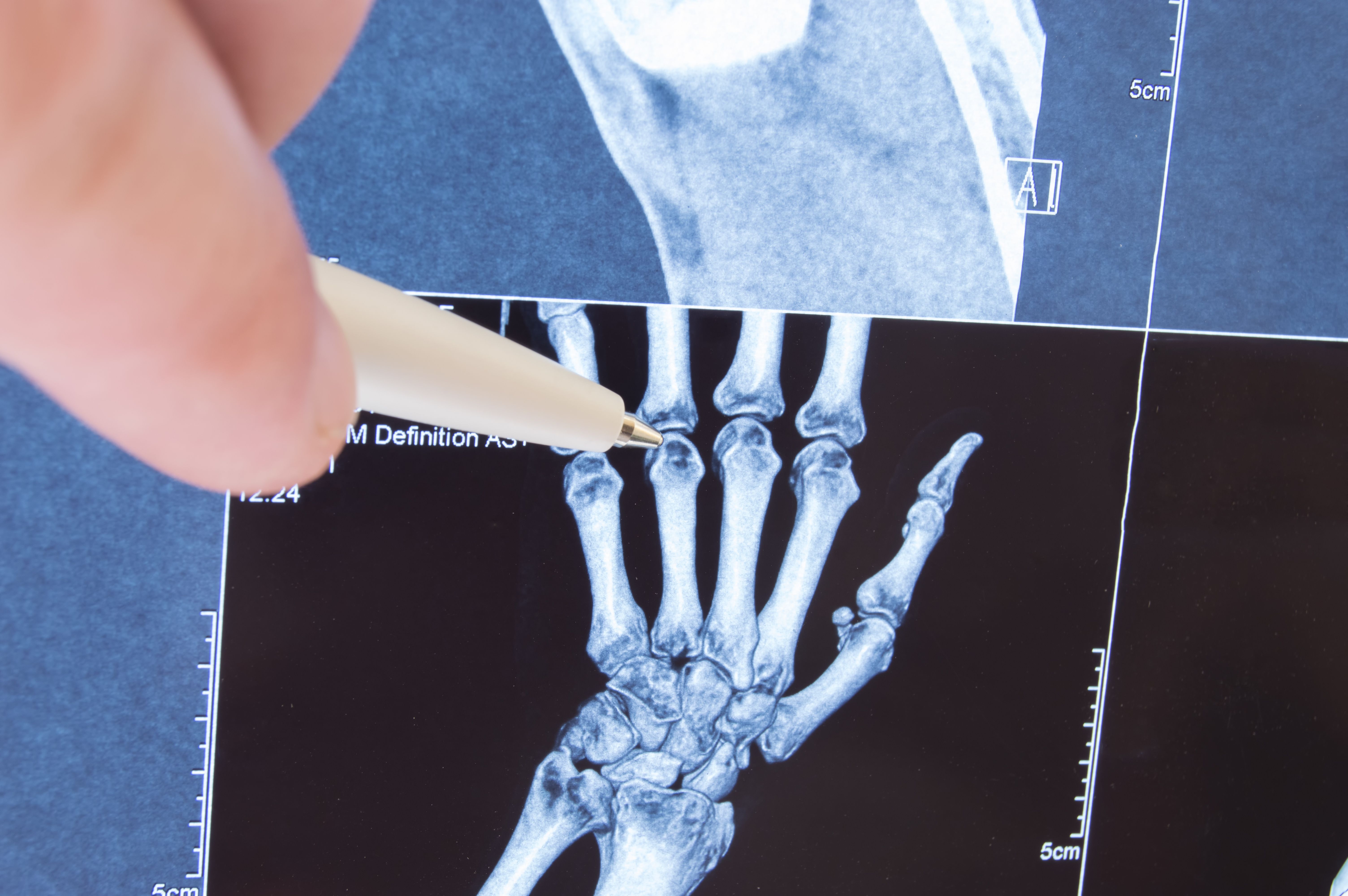Study Shows Benefits of Triple Therapy for RA
Triple therapy and methotrexate‐based biologic disease‐modifying antirheumatic drug (DMARD) combinations were superior to methotrexate alone for both American College of Rheumatology (ACR50) response and remission in patients with rheumatoid arthritis, say researchers writing in Arthritis Research & Therapy last month.
(©AdobeStock_Shidlovski)

Triple therapy and methotrexateâbased biologic diseaseâmodifying antirheumatic drug (DMARD) combinations were superior to methotrexate alone for both American College of Rheumatology (ACR50) response and remission in patients with rheumatoid arthritis, say researchers writing in Arthritis Research & Therapy last month.
However, guidelines by both the ACR and the European League Against Rheumatism do not recommend triple therapy for patients with rheumatoid arthritis over other treatment options either as initial therapy or after failure of methotrexate, but both groups provide triple therapy as an option.
While outcome evaluation in rheumatoid arthritis has evolved over time to include stringent definitions of response (ACR50/70/90), the goal with rheumatoid arthritis treatment is adequate disease control, with remission being the ultimate goal. Still, remission remains a less commonly considered outcome in clinical trials than ACR responses.
Triple therapy (methotrexate, sulfasalazine, hydroxychloroquine) has been previously reported to be similar to methotrexate plus biologic therapy and superior to methotrexate alone for ACR50 response, both as initial therapy and after an inadequate response to methotrexate. Although it has not been previously possible to evaluate remission for several of the treatments, including triple therapy, as these data were not reported in the available trials, advanced statistical methods now allow researchers to infer an unreported outcome.
“Our primary aim was to provide evidence on remission across all treatment comparisons given the importance of remission as an outcome in clinical practice,” wrote the authors, led by Glen Hazelwoood, M.D., Ph.D., University of Calgary in Canada.
Researchers completed a bivariate network metaâanalysis to jointly estimate Disease Activity Score 28 (DAS28) remission and ACR50 response across methotrexateâbased conventional synthetic and biologic DMARDs in rheumatoid arthritis.
“We first estimated the correlation between the ACR50 response and remission using
data from an incident RA cohort. This then allowed us to jointly model the outcomes, with data on the treatment effects provided from the included randomized controls trials,” the authors wrote.
From the cohort study, the correlation between ACR50 response and DAS28 remission at six months was moderate (Pearson correlation coefficient = 0.58). In the bivariate network metaâanalysis for methotrexateânaïve patients, most methotrexate combinations with either a biologic or tofacitinib were superior to methotrexate alone for both ACR50 response and remission. Triple therapy (methotrexate, sulfasalazine, hydroxychloroquine) was the only nonbiologic DMARD statistically superior to methotrexate for either ACR50 response (odds ratio 95% credible interval: 2.1 [1.0, 4.3]) or remission (OR: 2.5 [1.0, 5.8]). In the methotrexateâinadequate response analysis, all treatments except methotrexate plus sulfasalazine were superior to methotrexate alone.
“Our results demonstrate a statistically significant benefit for remission for several methotrexateâbased DMARD combinations (including triple therapy and biologic combinations) compared with methotrexate
monotherapy. Additionally, many of the treatment effects for both outcomes were more precise, with narrower credible intervals. By providing more precise treatment effects on key RA outcomes across all treatments, these results can help inform decision making for RA drugs.
“Our data provide further evidence supporting the benefit of triple therapy in the shortâterm, but other factors need to be considered. In the network metaâanalysis used in this article, triple
therapy had a higher rate of gastrointestinal side effects but not withdrawals that were due to adverse events,” the authors wrote.
While longâterm data on the tolerability of triple therapy over time are inconsistent, previous research has reported that triple therapy was highly cost effective compared with methotrexate plus etanercept.
“Ultimately, the decision of whether and when to use triple therapy versus alternate treatments should be a shared decision between the patient and physician,” the authors wrote.
Take-Home Points
- Triple therapy and methotrexateâbased biologic combinations were superior to methotrexate for both ACR50 response and remission.
- The novel bivariate approach allowed researchers to estimate remission, a more clinically relevant outcome than response, for all treatments.
- Multivariate network metaâanalyses hold promise in rheumatology drug research, when multiple correlated outcomes are available.
REFERENCE
Gyanendra Pokharel, Rob Deardon, Cheryl Barnabe, et al.“Joint Estimation of Remission and Response for MethotrexateâBased DMARD Options in Rheumatoid Arthritis: A Bivariate Network Metaâ Analysis.” Arthritis Research & Therapy. August 8, 2019. DOI 10.1002/acr2.11052